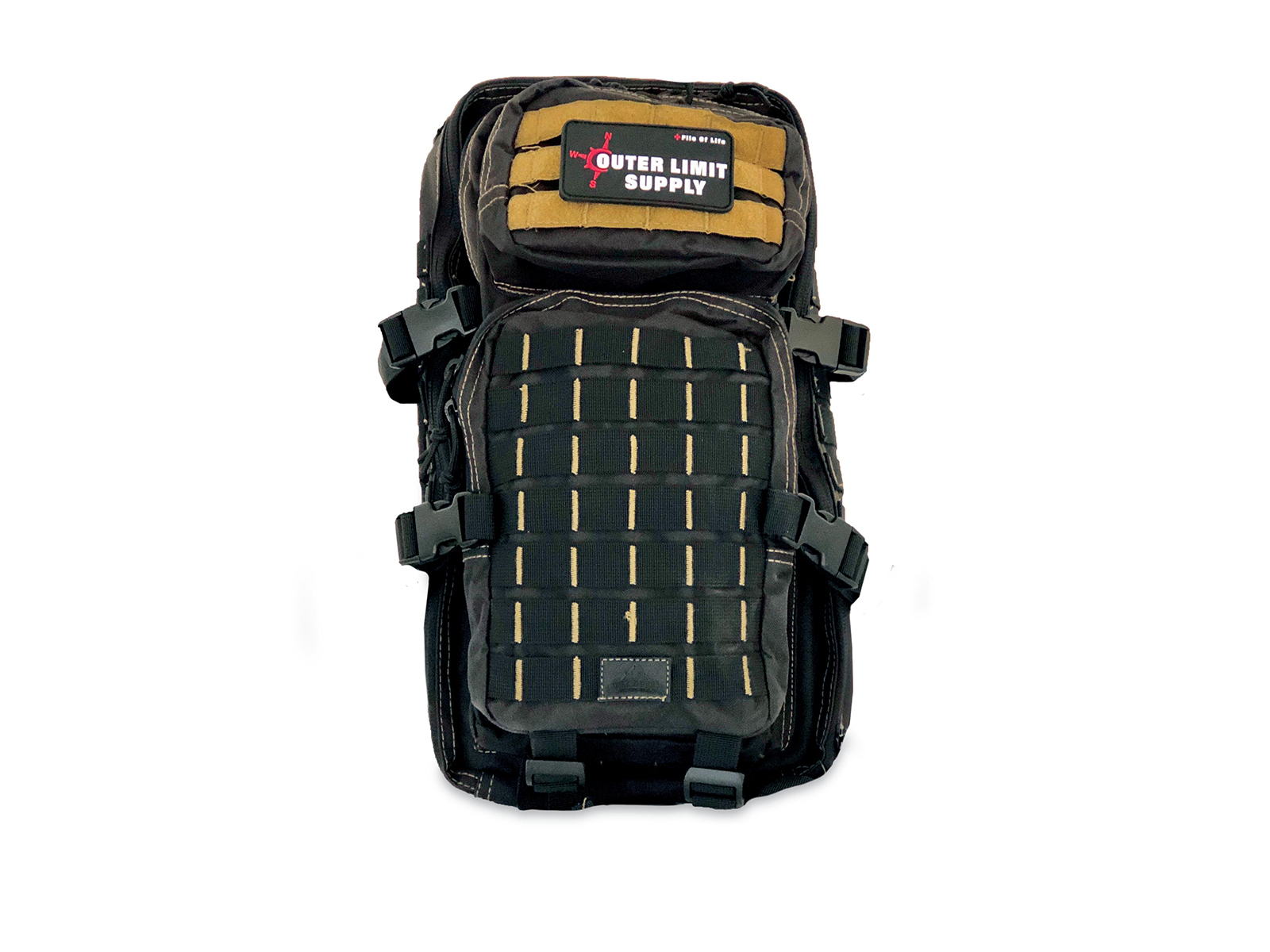The Local newsletter is your free, daily guide to life in Colorado. For locals, by locals.
If you’re taking your vehicle 30 miles from nowhere, you need to be prepared for…anything. Along with food, water, and clothing for your planned outing, you should have the following stashed somewhere in or strapped onto your OHV in case your joyride turns into a much less enjoyable excursion. “Most people need something bad to happen to get prepared,” says On Trail Training’s Matt Balazs, who helped us compile this basic list.* “You don’t want that to be you.”
Survival Mode

If your truck is sinking into a river and you can only grab one thing, you’ll want it to be your 72-hour bag. Your emergency-supplies duffel should have everything you need to survive for three days, including water, food, warm clothes, a winter hat and gloves, wool socks, a compass and map, a water filter, a knife, a tarp, a Mylar blanket, a small cookstove, a head lamp and batteries, a hatchet, waterproof matches, a lighter, a multitool, a toilet-in-a-bag kit, a first-aid kit (like this one from Colorado-based Outer Limit Supply), a whistle, and duct tape.

Heavy-duty

A quintessential tool for off-roaders, the Hi-Lift jack (around $120) requires some know-how, but it can be used when your everyday jack is too feeble or too small to do the job on tricky terrain. It can also be deployed as a hand winch, a spreader, or a clamp. Back-up Plan: Punctures happen. Make sure you have a basic jack and a sturdy, full-size spare tire that you know how to access (it’s often more difficult than you might think).
Lost & Found

There is a variety of personal locator beacons (like ACR’s ResQlink, $300) and satellite communicators (such as Spot X’s Two-Way Satellite Messenger, $250) on the market; having one can be a literal lifesaver if you’ve ventured too far afield and encountered trouble.
Get a Grip

Turns out that putting your floor mat under a spinning, hopelessly stuck tire doesn’t always work. Instead, invest in traction boards (roughly $300 for two), which actually provide a grippy surface for tires to bite into.
Air Stream

For less than $100, you can purchase a small portable air compressor that allows you to fill up your tires on location—a valuable capability if you’ve aired them down to drive over, say, sand or snow but then need to get on the highway or if you pop a tire and need to plump up your spare.
Diggin’ It

When you want to be able to slide your traction board under that stymied tire, you’re going to need a folding shovel (about $25, it fits better in the back than a full-size version) to make some space between the rubber and the mud.
*Ideally you should have a full tool kit, spare belts, extra fluids, replacements for universal joints and fuses, and a full recovery system; however, beginners who don’t know how to implement these things might want to stay on less risky, less isolated trails until they learn.








